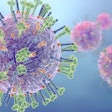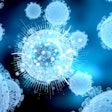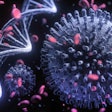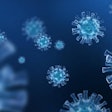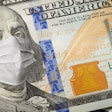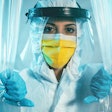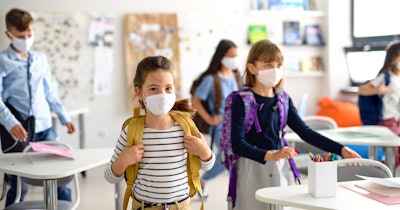
Researchers at Switzerland’s University of Bern have found that face masks and portable air cleaners in two Swiss schools effectively reduced the spread of SARS-CoV-2, the virus that causes COVID-19.
During the early part of the COVID-19 pandemic, public health authorities worldwide closed schools in order to prevent the SARS-CoV-2 virus from spreading. This decision sparked debate over the benefits versus the drawbacks of school closures, and the role of schoolchildren in virus transmission. Although the virus did spread frequently among students, the risk of school transmission is still poorly understood.
In their study, published Wednesday in PLOS Medicine, the researchers included 90 students and looked at viral transmission in classes with and without masking or air cleaners. They used molecular, environmental, and epidemiological data to understand how the SARS-CoV-2 virus spread in two secondary schools in Switzerland during the Omicron wave over seven weeks, from January to March 2022.
They analyzed changes in environmental and molecular characteristics between different study conditions, including no intervention, mask-wearing, and air cleaners. Analyses of these environmental changes were adjusted for different ventilation, the number of students in class, and school and weekday effects. Disease transmission was modeled using a semi-mechanistic Bayesian hierarchical model, adjusting for absent students and community transmission.
SARS-CoV-2 in saliva samples from students, as well as airborne SARS-CoV-2 in air samples, was consistently detected throughout the study period. However, concentrations of airborne SARS-CoV-2 were, on average, 70% lower with mask mandates and 40% lower with air cleaners. The researchers estimated that between two and 19 infections could potentially be avoided by mask-wearing during the study period.
The researchers say the levels of airborne virus detected within the schools indicated that SARS-CoV-2 was continually transmitted among students, and that mask mandates were highly effective at reducing airborne concentrations, potentially preventing transmission. They believe that their multiple-measurement approach could be used to continuously monitor the transmission risk of respiratory infections in schools and other congregate settings, particularly during epidemics of respiratory viral infections. Such monitoring could help public health officials better understand transmission patterns and the effectiveness of infection control measures.
“Although our study has several limitations, including the observational nature of our study and that detecting SARS-CoV-2 in the air or aerosols does not necessarily mean transmission, we found that mask mandates reduced transmission in classrooms, and both masks and air cleaners reduced aerosol concentrations,” co-author Dr. Lukas Fenner, senior scientist at the University of Bern’s Institute of Social and Preventive Medicine, said in a statement.









